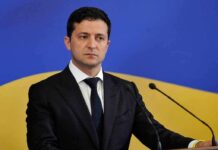
In a dramatic shift from his fiery opposition to Obama’s nuclear deal with Iran, Israeli Prime Minister Benjamin Netanyahu now finds himself muzzled by his own alliance with former President Donald Trump, whose surprise diplomatic overtures to Tehran have left Israel’s security strategy in disarray.
Key Takeaways
- Netanyahu cannot publicly criticize Trump’s Iran diplomacy as he did with Obama without risking Israel’s most important alliance
- Trump reportedly rejected Netanyahu’s request for U.S. support for a military strike against Iran’s nuclear facilities
- Trump’s diplomatic approach to Iran mirrors the Obama-era deal that Netanyahu once vehemently opposed
- The Heritage Foundation has proposed ending U.S. military aid to Israel by 2047, adding to Netanyahu’s challenges
The Silent Prime Minister
Once the world’s most vocal critic of Iranian nuclear ambitions, Netanyahu has been reduced to quiet diplomacy and behind-the-scenes pleading as Trump pursues negotiations with Iran that mirror the Obama-era deal Netanyahu once condemned before Congress.
“Netanyahu is paralyzed,” explains Yoel Guzansky of Israel’s Institute for National Security Studies. “He can’t publicly criticize Trump the way he did Obama without risking Israel’s most important alliance.”
This strategic paralysis comes at a critical moment. Despite Israel’s recent military successes against Iranian proxies in Syria, Lebanon, and Gaza, the Jewish state finds itself unable to leverage these victories into diplomatic strength as Trump prioritizes negotiation over confrontation.
From Obama’s Enemy to Trump’s Awkward Ally
The contrast between Netanyahu’s approaches to the two American presidents couldn’t be starker. Under Obama, Netanyahu launched an unprecedented diplomatic offensive, culminating in his controversial 2015 address to Congress that bypassed the White House entirely.
Netanyahu framed Obama’s deal as an existential threat, warning it preserved Iran’s nuclear infrastructure while providing sanctions relief that would fund terrorist proxies like Hezbollah. His strategy was clear: mobilize American public opinion against the agreement by painting it as a “historic mistake.”
Fast forward to 2025, and Netanyahu finds himself constrained by the very alliance he cultivated with Trump. After Trump withdrew from the JCPOA in 2018, Netanyahu expected a hardline approach would continue. Instead, Trump has pivoted to diplomatic engagement with Tehran that has left Israeli officials stunned.
The Rejected Strike Plan
In a revelation that has sent shockwaves through conservative circles, Trump reportedly rejected Netanyahu’s urgent request for U.S. support for a military strike against Iran’s nuclear facilities in May 2025.
“The prime minister came with operational plans, intelligence assessments, and a clear timeline,” said a senior Israeli defense official speaking on condition of anonymity. “He left Washington empty-handed.”
This rejection represents a stunning reversal for Netanyahu, who has spent decades positioning military action as the ultimate backstop against Iranian nuclear ambitions. Without American support, Israel faces the impossible choice between a risky unilateral strike that could trigger regional war or accepting a diplomatic solution that falls short of its security demands.
The Conservative Betrayal
For American conservatives who championed Trump’s withdrawal from the Obama deal, the current negotiations represent a bewildering about-face. Trump’s diplomatic outreach to Iran has created strange bedfellows, with progressive voices now endorsing Trump’s approach while traditional conservative allies of Israel warn of repeating past mistakes.
“It’s Obama’s playbook with Trump’s signature,” said one Republican congressional aide. “The backchannel talks, the interim arrangements, the focus on enrichment limits rather than dismantlement – it’s everything conservatives opposed in 2015.”
Netanyahu has attempted to influence these negotiations by insisting that Iran must completely dismantle its nuclear infrastructure, similar to Libya’s 2003 denuclearization. But his demands have gained little traction as Trump pursues what he calls a “beautiful deal” with Tehran.
“A bad deal is worse than no deal,” Netanyahu warned in a carefully worded statement that avoided direct criticism of Trump while signaling Israel’s red lines.
The Heritage Foundation Bombshell
Adding to Netanyahu’s challenges, the influential Heritage Foundation recently proposed ending U.S. military aid to Israel by 2047, arguing that transitioning Israel from an “aid recipient” to a “strategic partner” would better serve both nations’ interests.
“Israel’s economic miracle is a testament to its innovation and resilience,” the Heritage report states. “The time has come to evolve this relationship from dependency to true partnership.”
The proposal, which has gained traction in conservative circles, suggests that Israel’s robust economy no longer justifies the current $3.8 billion annual aid package. With that agreement set to expire in 2028, Netanyahu faces the prospect of diminished American support precisely when Iran’s nuclear threat remains unresolved.
A Nation at the Crossroads
For Israel, the stakes couldn’t be higher. Netanyahu has built his political career on positioning himself as the indispensable guardian against Iranian nuclear ambitions. Now, he finds himself unable to fulfill that promise without American backing.
“We’ve degraded their air defenses and struck key facilities,” said one Israeli security official. “But without American intelligence and operational support, a comprehensive campaign is simply not feasible.”
Military experts suggest that 2025 represents a viable window for action against Iran’s nuclear program, but the diplomatic and operational hurdles appear insurmountable without U.S. support. Meanwhile, Iran continues to advance its capabilities while engaging in talks that many in Israel view as a delaying tactic.
As Trump’s negotiations with Iran progress, Netanyahu finds himself in an unprecedented position: silenced by his alliance with an American president pursuing a policy he fundamentally opposes. For a man who once stood before Congress to denounce nuclear diplomacy with Iran, this enforced silence may prove to be his greatest political challenge yet.
The question now facing Israel is whether Netanyahu’s strategic patience will be rewarded with a deal that genuinely addresses Israel’s security concerns, or whether his reluctance to confront Trump will be remembered as the moment Israel lost its last chance to prevent a nuclear Iran.












